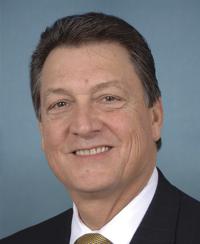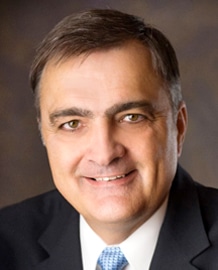 |
| The Republican tax bill would result in millions in dollars of cuts to the Railroad Unemployment Insurance Trust Fund and take funds away from out-of-work employees. Tell your senators and representatives to VOTE NO.
Next week, the House and Senate are expected to vote on a tax bill that is expected to add $1.5 trillion to $2 trillion to the federal deficit in the form of corporate and individual tax cuts. According to estimates, the Railroad Unemployment Insurance Trust Fund could lose as much as $9 million without any subsequent action by Congress under a 2010 budget process known as sequestration. “Required spending reductions would significantly exceed the total resources available to be sequestered,” said Michele Neuendorf, an RRB labor member counsel, in an email. “This would have the practical result of a 100% sequestration of all non-exempt direct spending accounts including the funds from the Railroad Unemployment Insurance Trust Fund which is used to pay unemployment and sickness benefits.” Under the federal “Pay-As-You-Go” (PAYGO) Act of 2010, changes in federal spending are required to balance or offset any increases to the federal budget deficit (also known as sequestration). As a result, the tax bill would trigger automatic budget cuts across all federal programs including the RRB’s Railroad Unemployment Trust Fund, which is targeted for a 6.6 percent cut or approximately $9 million in the 2018 fiscal year by the administration. “This tax proposal is Robin Hood caught in reverse,” said SMART Transportation Division National Legislative Director John Risch. “It would take from the poor and give to the rich. If the tax bill becomes law, the railroads will still be able to deduct money that they spend on union-busting lawyers while our members will no longer be able to deduct their union dues. The corporate tax rate for the big railroads will go from 35% to 21% while ours will stay the same with fewer deductions.” It also means that $9 million intended for ailing and unemployed rail workers doesn’t go where it was supposed to. Instead it will go into the pockets of corporations and the well-to-do. “Every person in America should be outraged that the Republican tax bill will borrow $1.5 trillion to $2.5 trillion to fund tax cuts for the wealthy while leaving no room for future federal investments toward infrastructure projects such as airports, transit systems, and passenger railroads,” Risch said. “I’ve been in the business of government policy since the 1980s and this is simply the worst tax proposal I have ever seen. Economists across the political spectrum are condemning this plan and the Republicans are so desperate for some sort of “win” they are moving forward with little to no transparency or accountability to their constituents.” Time is running out. A vote is planned for next week. Call your senators and representatives and urge them to vote against the tax bill. Find out who your members of Congress are by accessing the SMART-TD Legislative Action Center by clicking here or call the U.S. Capitol switchboard at (202) 224-3121. |

JOSEPH KACZMAREK / FOR THE INQUIRER AND DAILY NEWS SEPTA officials look over the damaged train cars, Tuesday Aug. 22, 2017, at 69th Street Transportation Center in Upper Darby Pa. According to SEPTA officials a train from the Norristown High Speed Line arriving at the transportation center shortly after midnight struck an unoccupied train car that was sitting at the station platform, injuring 42 people.
The train was carrying 41 passengers and the operator when the crash occurred about 12:15 a.m., said Heather Redfern, a SEPTA spokeswoman. The National Transportation Safety Board took over the investigation Tuesday morning, said Eric Weiss, a spokesman for the federal agency. A lead investigator was at the scene Tuesday morning, and a 10-member team was traveling from Washington, D.C., to assist.
The operator is a member of the United Transportation Union Local 1594. Waverly Harris, the local’s president, said he did not have enough information to comment on the crash Tuesday morning.
Upper Darby emergency officials mobilized for a mass casualty incident after the call came in for the crash, responding immediately with about 20 ambulances. The injured were taken to eight area hospitals.
High Speed Line trains were operating between Norristown and Upper Darby on Tuesday morning, running about every 20 minutes with no express service, SEPTA said. The 13.4-mile High Speed Line moves about 11,000 people each work day, according to SEPTA route statistics, between 69th Street and Norristown. The 26 cars on the route’s fleet went into service in 1993 and 1994, SEPTA reported.
A man who said he was a passenger on the train and identified himself only as Ronnie from Havertown told YC News and other reporters at the scene that the train overshot the Gulph Mills and Bryn Mawr Stations and had to back up. Ronnie said he believed the problem was the brakes and not the operator.
At least one rider voiced apprehension about riding on the line in the wake of the crash.
“Scared. Just a little bit,” said Tyeisha Bagwell, 27, of Frankford. “Because I got to take this train every day.”
The High Speed Line is equipped with Automatic Train Control, a system that establishes safe braking distances, a SEPTA spokesman said. It was not clear Tuesday whether ATC should have been able to prevent the collision from happening.
The 69th Street Terminal was the scene of another crash in February. In that incident, a SEPTA Market-Frankford Line derailed in a rail yard when it crashed into a stopped train, seriously injuring one of the operators. An NTSB investigation into that incident is still ongoing and the train’s operator has retired, according to a union representative.
Despite its name, the Norristown High Speed Line, like the PATCO High Speed Line in New Jersey, is not a European- or Japanese-style “fast train.” Its electrified light rail trains operate on a 13.4 mile right of way with 22 stations. The line’s express trains take 26 minutes to cover the distance while making stops at 17 stations.
by Jason Laughlin & Joseph A. Gambardello - Staff Writers




 With tens of thousands of Texans displaced by Hurricane Harvey, it is important that Americans band together to help our own. Below is a list of charities accepting donations to help with disaster relief efforts.
With tens of thousands of Texans displaced by Hurricane Harvey, it is important that Americans band together to help our own. Below is a list of charities accepting donations to help with disaster relief efforts.
